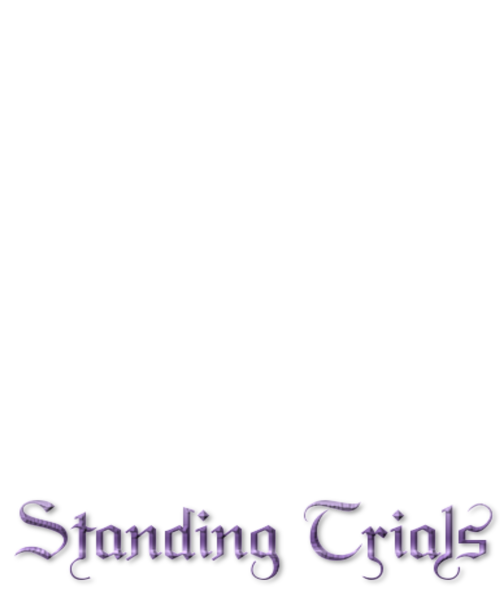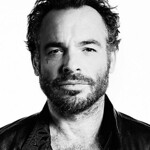1st of Saun, 717
1st bell, midnight
The meditation chamber nearest to the Mother's warmth had become as much his home as his prison cell in the neverending light of Uleuda, and Quio looked again at the scratches he'd made upon the dimmed crystal of the walls.
Tally marks.
Altogether there were 86.
87, if he counted today.
At first the tallies had been organized neatly in even rows, 1 2 3 4 and 5 striking through the rest, repeated again and again. But as time had gone by the tallies had grown more and more careless. Some he had put in close bunches, when he'd forgotten to make marks, or hadn't realized until too late that another three or four trials had already passed. Others were singular, crooked in their ugly lines.
"87 trials," he said aloud in his empty voice, and then closed his eyes and leaned forward to press his forehead against the tallied numbers. He was sitting cross-legged facing the wall, so close to the markings that his knees brushed the crystal there.
He sat like that for a long time.
---
When the door opened to the chamber he had his back to it, and he didn't move. The Ancients overseeing him had their disciples watching over him at all times, and Quio did not turn when a familiar voice rang out.
"Quiome, there is someone you need to meet with."
It was Abruzih-- Qadazih's youngest son. While the other Ancients had given up on him from the first, Qadazih was... kinder. She had been the one to postpone his trial. She was the one slowly teaching him Ulehi, those days when he felt well enough to learn. She was the one who encouraged him to get out of the room and to take visitors. He had discovered some time back that she did these things because she had known his mother.
Though she hadn't told him in so many words, Quio understood what that meant: that Qadazih had mentored his mother in much the same way when she, too, had been tortured by hateful men. When she, too, had been as good as dead.
"Quiome," Abruzih insisted, but the younger Yludih did not move except to raise his hands. Those he rested flat against the wall on either side of his head, still facing away.
"No," he said when the other had repeated his name a third time.
"Qada says--"
"No," Quio said again. He knew what it looked like. Sitting here, alone in the dim light. Facing the wall. The weak set of his shoulders. The bent back. The colored despair of his crystal. "No," he said again, more quietly this time. Against the wall his brow creased.
"Fine," Abruzih said shortly, "I'll just show her in."
Quio remained where he was.
There was a rustling at the door, as of robes, and a soft silence. Then Abruzih said, "Yana--"
"No," Quio said more strongly this time, before the other could finish. He had stopped seeing his sister half a season ago. She had burned so brightly, so fervantly in her belief that she would save him, and that brightness had hurt. It had hurt him incessantly. He already had enough pain. "Yanaqi, no. Please. Please go." Simple words, but effective.
Except--
"It is not your sister," Abruzih said harshly, and Quio could only shake his head.
But his mentor's son was having none of it. Abruzih strode over and ripped him to his feet by the neck of his robes, grabbing hold of him and forcing him to look towards the door.
There was a beat of profound silence, of recognition. Then, "Y-Yana," Quio stuttered. Abruzih let go of him and he stumbled and straightened and then immediately bowed. Not as one bows to a lady, but in shame or retreat-- he bowed his head as if to wince back. If she was sharp, Yana would notice that two of his fingers had gone from his right hand.
"Yanahalqah," he said. She had been the Leader. She had saved his life, and together they had damned many souls.
And here he was, now damned himself.
"I'm sorry." He ducked his head further. There was no way he could apologize properly. But he could say this at least. "I'm sorry." He could hardly look at her and he turned towards Abruzih.
But Abruzih looked back at him and crossed his arms.
"Speak to one another," the elder Yludih said, glancing a little more sympathetically at Yana before thrusting a crystal tablet into Quio's hands. Then, without another look at either of them, he left the room.
Yana and Quio. Together. Alone.
A moment passed and Quio put his hand to the tablet.
Writing here was not like writing in the waking world. This was a place of thought, of the mind, and because of that Quio's thoughts spilled effortlessly from his finger to the crystal below. Lines of words in glimmering light spread out from his touch, and after a moment he lifted his hand free.
I'm sorry, the words read. They appeared to be in Quio's own handwriting, though he had not physically written them himself. I'm sorry I wasn't there. I said I would be, and I wasn't. The words were in Rakahi, but Yana need only touch her hand to the tablet and she would be able to understand. This was how Yludih from all over the world transferred information. Things could be said and explained quickly between individuals, and on these tablets information could be given more precisely than spoken word could manage.
I was a coward. There was no hesitation there. He truly believed it. I'm not strong. I killed so many people here-- he was referring to the debacle with the nulliem. Here, and Without. And I didn't know what to do. Without, of course, was everything outside the Uleuda.
There was a war, he continued, the words coming quickly, there were monsters, and these monsters were like the nulliem. He was talking about the shadowbeasts in the war of immortals. Dark, frightening things. Like something from a nightmare. I was-- The words seemed to shift and blur somewhat here, maybe with confusion, but she might have been able to make out one final phrase, I was one of them. Then he stopped and whatever words had been there abruptly faded to nothing.
Quio shook his head and pulled his hand from the tablet. The hand he had used was his dominant hand, the one with fingers missing, and it trembled just a little.
Finally he touched the crystal again and new words appeared, more measured than before. I should have told you that I couldn't be here but I just couldn't. I couldn't. Those last two sentences erased suddenly and were gone. There's no excuse.
1st bell, midnight
The meditation chamber nearest to the Mother's warmth had become as much his home as his prison cell in the neverending light of Uleuda, and Quio looked again at the scratches he'd made upon the dimmed crystal of the walls.
Tally marks.
Altogether there were 86.
87, if he counted today.
At first the tallies had been organized neatly in even rows, 1 2 3 4 and 5 striking through the rest, repeated again and again. But as time had gone by the tallies had grown more and more careless. Some he had put in close bunches, when he'd forgotten to make marks, or hadn't realized until too late that another three or four trials had already passed. Others were singular, crooked in their ugly lines.
"87 trials," he said aloud in his empty voice, and then closed his eyes and leaned forward to press his forehead against the tallied numbers. He was sitting cross-legged facing the wall, so close to the markings that his knees brushed the crystal there.
He sat like that for a long time.
---
When the door opened to the chamber he had his back to it, and he didn't move. The Ancients overseeing him had their disciples watching over him at all times, and Quio did not turn when a familiar voice rang out.
"Quiome, there is someone you need to meet with."
It was Abruzih-- Qadazih's youngest son. While the other Ancients had given up on him from the first, Qadazih was... kinder. She had been the one to postpone his trial. She was the one slowly teaching him Ulehi, those days when he felt well enough to learn. She was the one who encouraged him to get out of the room and to take visitors. He had discovered some time back that she did these things because she had known his mother.
Though she hadn't told him in so many words, Quio understood what that meant: that Qadazih had mentored his mother in much the same way when she, too, had been tortured by hateful men. When she, too, had been as good as dead.
"Quiome," Abruzih insisted, but the younger Yludih did not move except to raise his hands. Those he rested flat against the wall on either side of his head, still facing away.
"No," he said when the other had repeated his name a third time.
"Qada says--"
"No," Quio said again. He knew what it looked like. Sitting here, alone in the dim light. Facing the wall. The weak set of his shoulders. The bent back. The colored despair of his crystal. "No," he said again, more quietly this time. Against the wall his brow creased.
"Fine," Abruzih said shortly, "I'll just show her in."
Quio remained where he was.
There was a rustling at the door, as of robes, and a soft silence. Then Abruzih said, "Yana--"
"No," Quio said more strongly this time, before the other could finish. He had stopped seeing his sister half a season ago. She had burned so brightly, so fervantly in her belief that she would save him, and that brightness had hurt. It had hurt him incessantly. He already had enough pain. "Yanaqi, no. Please. Please go." Simple words, but effective.
Except--
"It is not your sister," Abruzih said harshly, and Quio could only shake his head.
But his mentor's son was having none of it. Abruzih strode over and ripped him to his feet by the neck of his robes, grabbing hold of him and forcing him to look towards the door.
There was a beat of profound silence, of recognition. Then, "Y-Yana," Quio stuttered. Abruzih let go of him and he stumbled and straightened and then immediately bowed. Not as one bows to a lady, but in shame or retreat-- he bowed his head as if to wince back. If she was sharp, Yana would notice that two of his fingers had gone from his right hand.
"Yanahalqah," he said. She had been the Leader. She had saved his life, and together they had damned many souls.
And here he was, now damned himself.
"I'm sorry." He ducked his head further. There was no way he could apologize properly. But he could say this at least. "I'm sorry." He could hardly look at her and he turned towards Abruzih.
But Abruzih looked back at him and crossed his arms.
"Speak to one another," the elder Yludih said, glancing a little more sympathetically at Yana before thrusting a crystal tablet into Quio's hands. Then, without another look at either of them, he left the room.
Yana and Quio. Together. Alone.
A moment passed and Quio put his hand to the tablet.
Writing here was not like writing in the waking world. This was a place of thought, of the mind, and because of that Quio's thoughts spilled effortlessly from his finger to the crystal below. Lines of words in glimmering light spread out from his touch, and after a moment he lifted his hand free.
I'm sorry, the words read. They appeared to be in Quio's own handwriting, though he had not physically written them himself. I'm sorry I wasn't there. I said I would be, and I wasn't. The words were in Rakahi, but Yana need only touch her hand to the tablet and she would be able to understand. This was how Yludih from all over the world transferred information. Things could be said and explained quickly between individuals, and on these tablets information could be given more precisely than spoken word could manage.
I was a coward. There was no hesitation there. He truly believed it. I'm not strong. I killed so many people here-- he was referring to the debacle with the nulliem. Here, and Without. And I didn't know what to do. Without, of course, was everything outside the Uleuda.
There was a war, he continued, the words coming quickly, there were monsters, and these monsters were like the nulliem. He was talking about the shadowbeasts in the war of immortals. Dark, frightening things. Like something from a nightmare. I was-- The words seemed to shift and blur somewhat here, maybe with confusion, but she might have been able to make out one final phrase, I was one of them. Then he stopped and whatever words had been there abruptly faded to nothing.
Quio shook his head and pulled his hand from the tablet. The hand he had used was his dominant hand, the one with fingers missing, and it trembled just a little.
Finally he touched the crystal again and new words appeared, more measured than before. I should have told you that I couldn't be here but I just couldn't. I couldn't. Those last two sentences erased suddenly and were gone. There's no excuse.
"Speaking in Rakahi"
"Speaking in Common"
"Speaking in Ulehi"
"Speaking in Common"
"Speaking in Ulehi"




